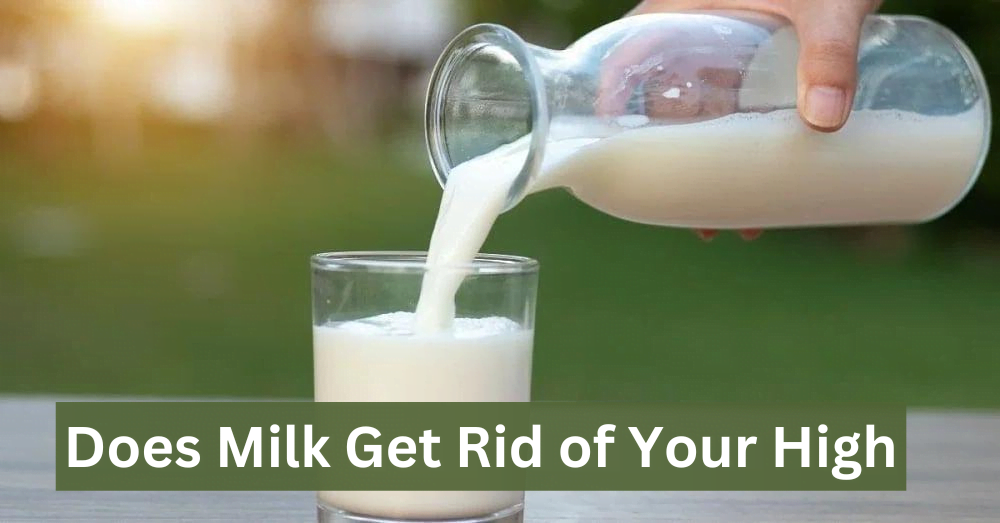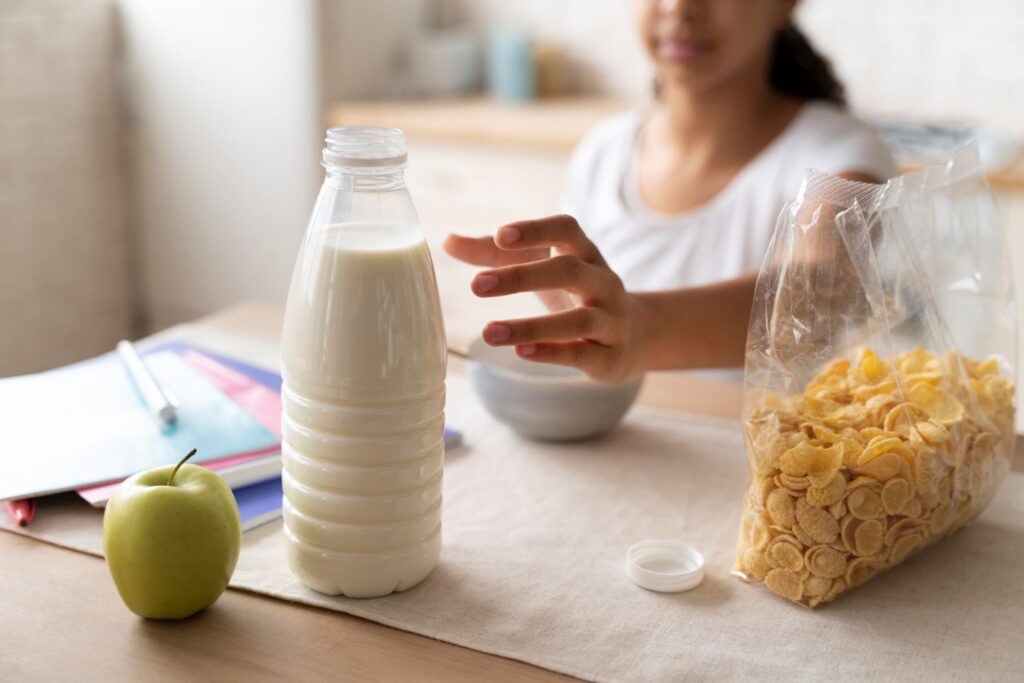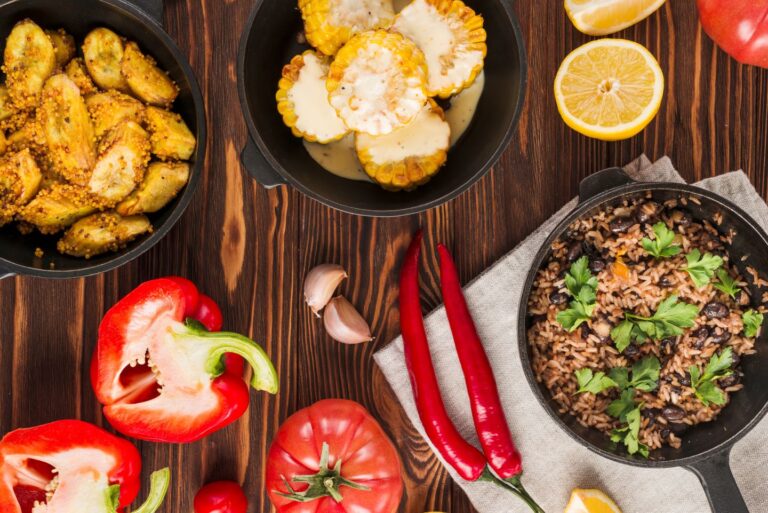Does Milk Get Rid of Your High? Understanding Truth

From a scientific standpoint, there is no evidence to suggest that milk or any other food product can expedite the process of sobering up from a THC-induced high. THC is lipid-soluble, meaning it’s stored in fat cells within the body and is released slowly over time.
While it’s conceivable that the fats within milk could theoretically bind with THC, this interaction would not be significant enough to alter the state of intoxication or speed up the process of becoming sober.
Understanding the High
To address the claim, it’s crucial to understand what happens in the body when it experiences a high. THC (tetrahydrocannabinol), the psychoactive compound in marijuana, interacts with the body’s endocannabinoid system (ECS).
The ECS regulates various functions, including mood, memory, appetite, and pain sensation. THC binds to cannabinoid receptors in the brain and alters normal neurotransmitter function, leading to the psychoactive effects associated with being high.
The Role of Milk
Milk is a nutrient-rich liquid, high in vitamins, minerals, and fats, most notably for this discussion. The myth possibly originates from THC, which is fat-soluble, meaning it dissolves well in fats. This property is why cannabis edibles often require a fatty substance (like butter or oil) to effectively deliver THC.
The logic behind the milk myth might be that consuming a greasy liquid could somehow absorb or counteract THC in the system, but does this stand up to scientific scrutiny?
The Science Behind the Myth
THC absorption and its interaction with the body’s ECS is complex and not easily influenced by dietary intake in the short term.
When THC enters the bloodstream, whether through inhalation or ingestion, it quickly binds to cannabinoid receptors. These receptors are not directly influenced by milk or other foods. Once THC is bound to receptors and has exerted its effects, the process of becoming “less high” involves the body metabolizing and eliminating the compound, a task primarily handled by the liver.
Other Factors to Consider
Hydration and nutrition can influence how one feels in general, and there’s a possibility that drinking milk—or any other beverage, for that matter—might offer a slight feeling of sobering up simply through the act of hydrating or having something in the stomach. However, this effect would be psychological or related to the physical act of consuming something rather than a biochemical reduction of THC’s effects.
What Actually Works?
Time is the most reliable method for reducing the effects of a high. The body needs time to metabolize and excrete THC. This process can vary significantly from person to person based on factors like metabolism, body fat percentage, and frequency of use.
There are no quick fixes to speed up this process, but staying hydrated, eating a balanced diet, and resting can support the body’s natural metabolic processes.
Some anecdotal evidence suggests that engaging in physical activity or consuming certain foods and supplements might help speed up the metabolism of THC. Still, scientific evidence to back these claims is limited.

Can milk reduce the effects of THC?
The myth that milk can diminish the effects of being high likely stems from misunderstandings about THC’s fat solubility. While it’s true that THC is fat-soluble and that consuming fats can affect the absorption of THC when ingested as edibles, drinking milk after THC has already been absorbed into the bloodstream would not reverse or significantly alter its psychoactive effects.
Reducing THC’s effects primarily involves the body metabolizing and eliminating the substance over time, which is a function of the liver and excretory systems, not directly influenced by dietary intake.
Hydration and general nutrition can impact overall well-being and might influence how one feels during a high, but they do not specifically counteract THC’s psychoactive effects.
To sober up from a high THC, the most effective strategies are time, staying hydrated, resting, and possibly engaging in light physical activity to boost metabolism. Consuming milk or other specific foods to sober up from a THC high is, therefore, more a myth than a factually supported practice.
What Foods Help Get Rid of a High?
While there’s no magic food that can instantly sober you up from a THC high, certain foods and drinks can help mitigate the effects or make you feel more comfortable. Here’s a list of foods and tips that may help:
Water and Hydration
- Why it helps: Staying hydrated can help alleviate dry mouth (cottonmouth) and ensure your body functions optimally to metabolize THC.
- What to do: Drink plenty of water, herbal teas, or electrolyte-rich drinks.
Lemon and Citrus
- Why it helps: Lemons contain limonene, which can be calming. Some believe it might counteract some effects of THC, although scientific evidence is lacking.
- What to do: Squeeze fresh lemon into water or tea. Adding a bit of honey can also help with energy levels.
CBD-rich Products
- Why it helps: CBD (cannabidiol) can counteract some of THC’s psychoactive effects due to its interaction with the endocannabinoid system.
- What to do: Consume CBD oil or a CBD-infused snack. However, it’s essential to ensure it’s from a reliable source and know CBD’s legal status in your area.
Black Pepper
- Why it helps: Black pepper contains beta-caryophyllene, which may help reduce anxiety and paranoia associated with THC.
- What to do: Chew on a few black peppercorns or sniff ground pepper.
Healthy Snacks
- Why it helps: Eating can help boost your blood sugar and give your body energy to process THC.
- What to do: Opt for healthy snacks like fruits, nuts, or yogurt, which are easy on the stomach and provide nutrients.
Complex Carbohydrates
- Why it helps: Foods rich in complex carbs can help stabilize your blood sugar and provide a steady energy source.
- What to do: Eat whole grains, legumes, or starchy vegetables like sweet potatoes.
Herbal Teas
- Why it helps: Certain herbal teas can provide a calming effect, helping to manage anxiety or jitters.
- What to do: Chamomile, lavender, and green tea are good options.
Foods High in Omega-3 Fatty Acids
- Why it helps: Omega-3 fatty acids are anti-inflammatory and may support brain health.
- What to do: Consume fish like salmon, or if you’re vegetarian, opt for flaxseeds or chia seeds.
General Tips:
- Avoid caffeine and alcohol: These can dehydrate you or exacerbate feelings of anxiety or paranoia.
- Eat lightly: Don’t overeat; feeling overly full can increase discomfort.
- Stay calm and find a comfortable setting: Environment plays a crucial role in how you experience a high.
Ultimately, the best way to reduce the effects of a high is to give it time. Your body needs time to metabolize THC, and these foods and practices can help support your body’s natural processes and make you feel more comfortable in the meantime.
What are the signs and symptoms of a high?
Signs and symptoms of being high vary greatly depending on the substance taken; here, we’ll outline the expected effects of THC consumption with cannabis use.
These could range from physical to psychological impacts. They may vary in intensity based on factors such as the dose, the individual’s tolerance, the method of consumption (smoking, vaping, edibles, etc.), and the strain of cannabis.
Psychological Effects
- Euphoria: Often described as a feeling of joy, relaxation, and well-being.
- Altered Perception: Changes in perception of time, space, and sensory inputs like colors, sounds, and touch.
- Increased Appetite: Commonly known as “the munchies,” this is a craving for snacks and food.
- Altered Cognitive Functions: Difficulty with short-term memory, problem-solving, and concentration.
- Mood Changes: This can range from increased anxiety and paranoia to relaxation and happiness.
- Altered Motor Control: Coordination may be impaired, affecting tasks that require fine motor skills.
Physical Effects
- Red Eyes: Caused by dilation of blood vessels in the eyes.
- Dry Mouth: Often referred to as “cottonmouth,” it’s a feeling of dryness in the mouth.
- Increased Heart Rate: A temporary increase in heart rate is expected shortly after consuming cannabis.
- Sleepiness or Fatigue: Users may feel tired or lethargic as the high wears off.
Duration of Effects
The duration of a cannabis high can vary significantly. When smoked or vaped, effects can be felt within minutes and typically peak within 30 minutes to an hour, lasting 2 to 3 hours. Edibles take longer to kick in, often 30 minutes to 2 hours, with effects lasting anywhere from 4 to 8 hours or longer.
It’s essential to note that some may find specific effects more pronounced, while others may have a different experience. If you’re new to cannabis or trying a new form of consumption, start with a low dose and go slow to see how it affects you.
FAQ: Does Milk Get Rid of Your High?
Can drinking milk sober you up from a high THC?
No, there is no scientific evidence to suggest that milk or any other food product can expedite the process of sobering up from a THC-induced high. The process of reducing THC’s effects primarily involves the body metabolizing and eliminating the substance over time.
Why do some people believe milk can reduce a high THC?
The belief likely stems from the fact that THC is fat-soluble, and since milk contains fats, it’s assumed that these fats could bind with THC. However, this interaction is not significant enough to alter the state of intoxication or speed up the sobering process.
What actually works to reduce the effects of a high THC?
Time is the most effective way to reduce the effects of a high THC. Your body needs time to metabolize and excrete THC. Staying hydrated, eating a balanced diet, and resting can support your body’s natural processes during this time.
Are there any foods or drinks that can help mitigate the effects of being high?
While no food or drink can directly counteract the effects of THC, staying hydrated and consuming foods that make you feel comfortable can help. Some people find that drinking water, herbal teas, or finishing CBD-rich products can offer some relief from specific effects of THC.
How does THC work in the body?
THC interacts with the body’s endocannabinoid system (ECS), binding to cannabinoid receptors in the brain. This interaction alters neurotransmitter release, leading to the psychoactive effects associated with being high.
Does the fat content in milk bind with THC in your bloodstream?
While it’s true that THC is fat-soluble, the consumption of milk after THC has entered the bloodstream does not effectively bind with and eliminate THC. The process of becoming less high involves the body’s metabolism and is not significantly impacted by consuming milk.
What should I do if I want to sober up from a THC high?
The best strategy is to wait and support your body’s natural metabolism. Stay hydrated, consume light and healthy snacks if you’re hungry, and try to rest. Engaging in light physical activity can also help some people feel more alert.
Can CBD help reduce the effects of a high THC?
CBD (cannabidiol) has been reported to counteract some of THC’s psychoactive effects due to its interaction with the endocannabinoid system. Consuming CBD products may help alleviate some symptoms of a high THC, but individual results can vary.
Is it harmful to drink milk while high?
No, drinking milk while high is not harmful. While it won’t reduce the effects of THC, it can contribute to hydration and nutritional intake, which may help you feel better overall.






